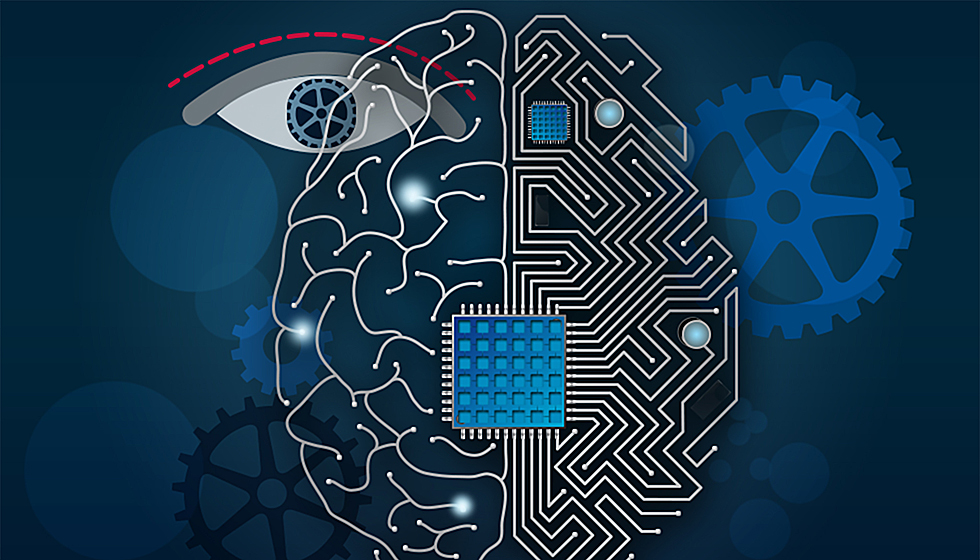NSF awards $25 million to MIT-based center to advance brain understanding
September 10, 2013

Significant obstacles remain before the gap between brain and machine can be bridged (credit: Christine Daniloff/MIT)
The center is one of three new research centers funded this year through NSF’s Science and Technology Centers: Integrative Partnerships program.
The MIT center will also play a key role in the new BRAIN Initiative, an effort by federal agencies and private partners to support and coordinate research to understand how the brain works.
“Understanding the brain is one of the grand scientific challenges at the intersection of the physical, life, behavioral and engineering sciences,” said John Wingfield, assistant director of NSF’s Biological Sciences Directorate. “Despite major research and technological advances achieved in recent decades, a comprehensive understanding of the brain — how thoughts, memories and intelligent behavior emerge from dynamic brain activity — remains unexplained.”
Human intelligence has many aspects–including an ability to understand people and surroundings by using vision and language — so the researchers will take a multi-faceted approach. Recent work in artificial intelligence has focused in part on improvements in modeling human vision and social interaction, producing self-driving cars and the verbally quick Watson, for example.
Interdisciplinary research
Work at the new MIT center will cross disciplines to build more human-like machines, with the goal of establishing a theory of intelligence.
The five-year award will enable the center’s researchers to benefit from the expertise of neuroscientists, engineers, mathematicians and computational scientists through a global network of academic, industrial and technological partnerships. Tomaso Poggio, the Eugene McDermott Professor at the Department of Brain Sciences at MIT, is the principal investigator for the project.
The award will also help train the next generation of scientists and engineers. A summer school program, technical workshops and online courses are planned to create a new community of interdisciplinary researchers fluent in the study of intelligence.
The center’s other principal investigators include Haym Hirsh, Dean of the Faculty of Computing and Information Science and Professor of Computer Science and Information Science at Cornell University; Lakshminarayanan Mahadevan, Lola England de Valpine Professor of Applied Mathematics at Harvard University and Matthew Wilson, Sherman Fairchild Professor of Neuroscience and Picower Scholar at MIT.
The Center for Brains, Minds and Machines will partner with the following institutions and organizations.
Academic institutions
- California Institute of Technology
- Cornell University
- Harvard University
- MIT
- Rockefeller University
- Stanford University
- University of California, Los Angeles
- Howard University
- Hunter College
- Universidad Central del Caribe, Puerto Rico
- University of Puerto Rico, Río Piedras
- Wellesley College
- City University, Hong Kong
- Hebrew University of Jerusalem
- Italian Institute of Technology
- Max Planck Institute for Biological Cybernetics, Tübingen
- National Center for Biological Sciences, Bangalore, India
- University of Genoa
- Weizmann Institute of Science
(¯`*• Global Source and/or more resources at http://goo.gl/zvSV7 │ www.Future-Observatory.blogspot.com and on LinkeIn Group's "Becoming Aware of the Futures" at http://goo.gl/8qKBbK │ @SciCzar │ Point of Contact: www.linkedin.com/in/AndresAgostini
 Washington
Washington